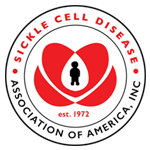
CMO Speaks is a blog featuring the voices of SCDAA’s clinical leadership team. The below article was written by Dr. Lewis Hsu, SCDAA chief medical officer, with input from Dr. Lydia Pecker.
NPR recently produced this segment with sickle cell warrior and advocate Teonna Woolford on fertility care and SCD. This is an underdiscussed topic and an important aspect of sickle cell care. We congratulate Teonna and the Sickle Cell Reproductive Health Education Directive (SC RED) for getting this message out, and we are grateful for the attention from NPR. In light of this discussion, we would like to reinforce a few points about reproductive health and SCD:
- Even without a transplant or gene therapy, sickle cell disease can damage patients’ bodies in ways that can affect their ability to have children. We agree with the statements by Drs. Lydia Pecker and Leena Nahata in this NPR report.
- Currently, insurance coverage for fertility preservation is highly variable and differs from state to state. We agree with statements in this NPR report by Dr. Irene Su about the vagueness of these policies. This is a sickle cell advocacy opportunity to get coverage in more states. SCDAA praises the efforts of SC RED and the Alliance for Fertility Preservation as allies in fighting for coverage. However, just as the NPR report described for intrauterine insemination, there are high costs and many other barriers of access to these procedures. Shared decision-making should be the model for information, choices and policies.
- SCDAA agrees wholeheartedly with the statements in this NPR report regarding funding disparities and the lack of information dissemination about sickle cell disease. The NASEM 2020 Report has much more information about action steps to take.
Go deeper – What is not brought out in this NPR report
- Sickle cell disease is an inherited condition. Another aspect of reproductive decision-making for individuals with SCD is understanding the risks of having a child who also has sickle cell disease (more about family planning in this infographic from SC RED). Having a child with sickle cell disease is not a mistake, but it should not be a surprise for lack of information. Tests are available to know whether the mate has the sickle gene or another hemoglobin variant. Tests are available for prenatal diagnosis. Fertility centers also can do preimplantation genetic diagnosis and embryo selection to choose an embryo without sickle cell disease.
- For individuals with sickle cell, choosing to have children also means gathering a support system so that they can be a caregiver for a child when they themselves have sickle cell problems. (Currently, the mother of one of my patients cannot be at the bedside for her child with sickle acute chest syndrome because she is hospitalized herself for sickle cell pain.)
- Making reproductive decisions would be best done in the format of “shared decision-making.” These are complicated decisions that depend on individual situations and individual values. Individuals with sickle cell disease should try to be well-informed. Try to explain your values and reasons to your health care provider(s), and ask questions until you have a solid understanding. Please be aware that some things are not certain in medicine and in reproduction and can only be described as chances and risks.
Helpful links and resources
- https://www.npr.org/sections/health-shots/2022/12/05/1129125408/for-patients-with-sickle-cell-disease-fertility-care-is-about-reproductive-justi
- https://sicklecellred.org/wp-content/uploads/2022/07/updated-family-planning.pdf
- https://www.nytimes.com/2021/09/14/health/sickle-cell-cure.html
- https://www.nytimes.com/2021/12/28/health/sickle-cell-genetic-testing.html

Lewis Hsu, MD, PhD, is a pediatric hematologist who serves as director of the Sickle Cell Center and professor of pediatrics for the University of Illinois at Chicago. He has conducted sickle cell research, published over 50 peer-reviewed papers and co-authored “Hope and Destiny: The Patient and Parent’s Guide to Sickle Cell Disease and Sickle Cell Trait.” He currently serves as the SCDAA Chief Medical Officer.
